Zone du titre et de la mention de responsabilité
Titre propre
FHYA selection from the Royal House of Dlamini Series
Dénomination générale des documents
- Document textuel
- Objet
Titre parallèle
Compléments du titre
Mentions de responsabilité du titre
Notes du titre
- Source du titre propre: FHYA using WITS materials
Niveau de description
Série
Cote
Zone de l'édition
Mention d'édition
Mentions de responsabilité relatives à l'édition
Zone des précisions relatives à la catégorie de documents
Mention d'échelle (cartographique)
Mention de projection (cartographique)
Mention des coordonnées (cartographiques)
Mention d'échelle (architecturale)
Juridiction responsable et dénomination (philatélique)
Zone des dates de production
Date(s)
-
2016 - (Online curation)
-
2000 - (Conservation)
-
c.1968 - c.1982 (Interview-recording)
Zone de description matérielle
Description matérielle
- 7 Notebooks
- 3 Rejected Edited Typescripts
- 2 Index Cards
- 2 Floppy Disk Labels
- 2 Original Collection Boxes
- 2 Folders
- 2 Original Collection Box Labels
Zone de la collection
Titre propre de la collection
Titres parallèles de la collection
Compléments du titre de la collection
Mention de responsabilité relative à la collection
Numérotation à l'intérieur de la collection
Note sur la collection
Zone de la description archivistique
Historique de la conservation
[Source - Chloe Rushovich for FHYA using Wits materials, 2017: In the mid-1960s King Sobhuza II commissioned a series of interviews about the history of Swaziland. The primary interviewer in charge of this undertaking was Isaac Dlamini, who was one of Sobhuza’s personal aides. He was assisted in the interview process by Maboya Fakudze and Mahlaba. Some of the transcription and translation work on these interviews was done by Ruth Mavimbela, and possibly also by Rotter Sicheme Mamba. This material was donated to the Swaziland Oral History Project in the late 1980s. In 2012, the Wits Historical Papers undertook to digitize the recorded interviews. This was made possible by a grant from the Carnegie Foundation. A full copy of the digitized recorded interviews was deposited by the Wits Historical Papers in the University of Swaziland Library. In 2014 the Five Hundred Year Archive commissioned Patricia Liebetrau, a metadata librarian who had worked on the Digital Imaging South Africa project, to undertake the digitization of a selection of the transcripts from the recordings made by Isaac Dlamini for the Royal House of Dlamini.]
Portée et contenu
[Source - Chloe Rushovich for FHYA using Wits materials, 2017: In the mid-1960s King Sobhuza II commissioned a series of interviews about the history of Swaziland. These interviews were conducted across the length and breadth of Swaziland from the mid-1960s to the early 1980s. They embrace a range of historical topics, notably the origins of the people of Swaziland, as well as the origins of its many chieftaincies. These interviews display a strong regional emphasis, and were conducted, in part, as a part of a program undertaken by the Swazi monarchy for the recovery and reinvigoration of Swaziland’s customs and traditions in the 1960s and 1970s. The transcripts selected were those for which a typed-up summary or typed edited typescript already existed. The rationale for this was that the typed version, unlike the handwritten versions could be subjected to optical character recognition and are thus searchable. The linked typed texts therefore act as a kind of index to the handwritten texts and the recorded audio. In 2014 the Five Hundred Year Archive commissioned Patricia Liebetrau, a metadata librarian who had worked on the Digital Imaging South Africa project, to undertake the digitization of a selection of the transcripts from the recordings made by Isaac Dlamini for the Royal House of Dlamini. This selection of transcripts, as well as the already digitized audio, the rejected experimental edited typescripts, and associated materials such as collection boxes, index cards, folders, audio tape cassettes and case labels, and notebooks, formed the FHYA selection from the collection of Royal House of Dlamini recordings. The Royal House of Dlamini series is separated into ‘files’ named after each interlocutor.]
Zone des notes
État de conservation
Source immédiate d'acquisition
Classement
Langue des documents
Écriture des documents
Localisation des originaux
Disponibilité d'autres formats
Restrictions d'accès
Délais d'utilisation, de reproduction et de publication
Creative Commons License: CC BY-NC-ND
https://creativecommons.org/licenses/by-nc-nd/3.0/
Unless otherwise stated the copyright of all material on the FHYA resides with the contributing institution/custodian.
Instruments de recherche
Finding Aids
Inventory for A2760
http://www.historicalpapers.wits.ac.za/?inventory/U/collections&c=A2760/R/6387


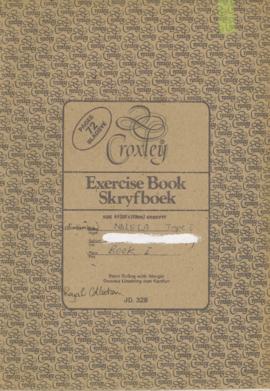



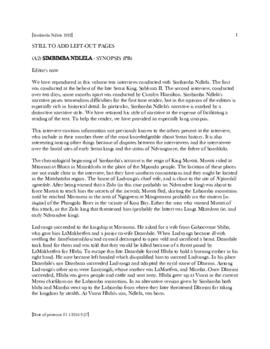



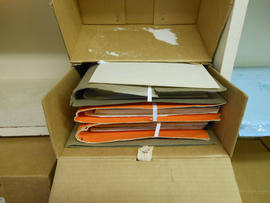
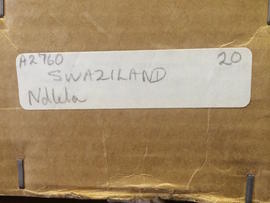
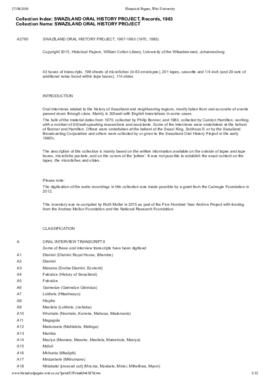


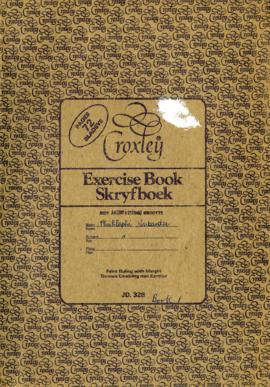
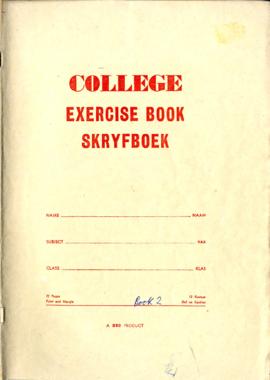
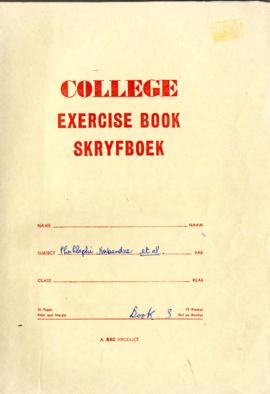
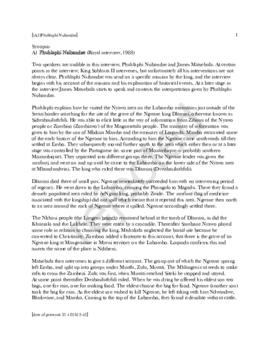

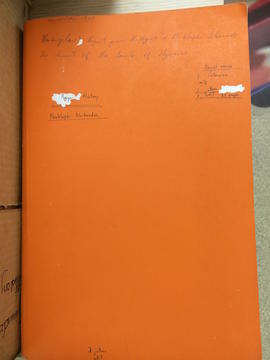
Material contributed by members of the public
Building an archive is a collective endeavour. Please help us grow the FHYA knowledge base.
If you want to add information to this page you can insert a hyperlink, add files and/or text to the box below.
In the case of material relevant to the FHYA as a whole please upload information HERE.
The FHYA does not vet this material but reserves the right to remove anything deemed to be racist, homophobic, sexist or otherwise offensive. Everything on the FHYA is licensed under a Creative Commons CC BY-NC-ND licence.
To make a contribution you must be a registered user. To register an account, click here. Note that after registration you will not be automatically redirected to this page.
If you have already registered but are not logged in, log in here.